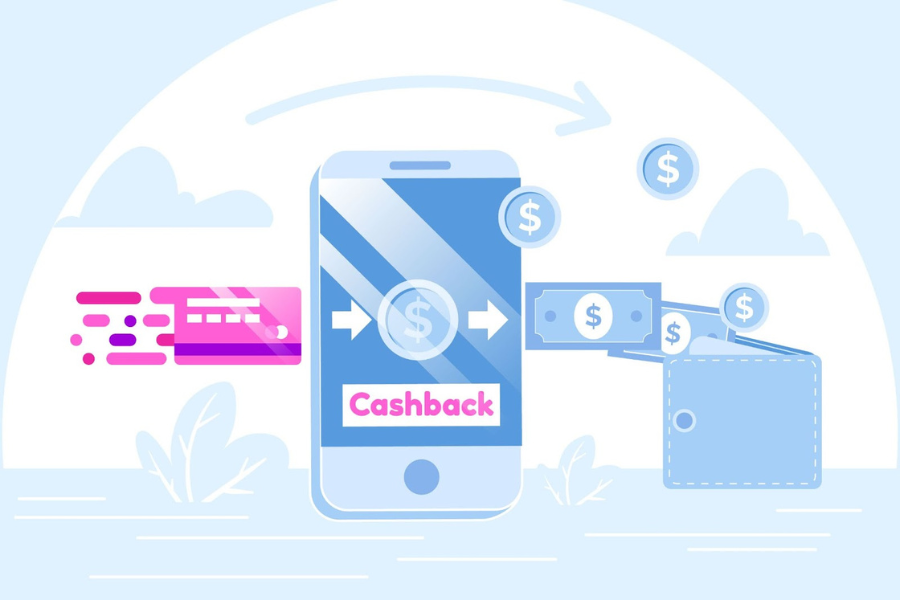Cross-border financial transactions are sending or receiving a payment from another country. Moreover, these exchanges often happen for retail and wholesale payments, including remittances.
If you have dreams of growing your online store globally, then you need to read this article. Let’s dive into efficient ways for international payments in Indonesia!

Understanding the Indonesian Ecommerce Landscape
Indonesia’s e-commerce sector is the largest in Southeast Asia. Thus, it’s valued at a staggering 62 billion USD.
Its online business activities are a cut above the rest. This makes it an ideal place for online stores of all kinds. But why? There are a couple of factors that caused this.
- The country has a young, tech-savvy population
- It has high internet and smartphone penetration rates
- Mobile commerce has been on the rise since the pandemic
- Digital payment methods are gaining popularity
Major players in this space include:
- NEXT BASKET
- Shopee
- Lazada
- Tokopedia
For e-commerce, cross-border payments are essential. It’s the very heart of this market dynamic.
E-commerce platforms enable business without borders, but it’s cross-border payments that make it work. Thanks to them, customers from around the world can easily transact with Indonesians. This boosts trade and enhances the national economy.
Cross-Border Payment Overview in Indonesia
Global payments are vital for Indonesia’s economy. Plus, they help with sending money across borders, trading, and investing.
We have a prime trade location replete with growing trade links. Thus, there are a lot of opportunities for businesses to deal with foreign partners. This involves changing the Indonesian Rupiah (IDR) into other currencies, such as:
- USD
- SGD
- PHP, and
- EUR, among many others.
Your international online store must handle cross-border payments to import goods. It’s the only way to get paid by customers and pay overseas suppliers. Good payment processing even lets them invest in other countries.
Managing these payments can be tricky due to regulations, exchange rates, and fees.
Thus, you must learn and follow rules like anti-money laundering (AML) and know-your-customer (KYC). These ensure that money transfers are clear and honest.
Regulatory Compliance in Cross-Border Transactions
Compliance is integral in businesses’ cross-border exchange. Hence, this ensures honesty and trust in financial dealings. Let’s take a look at some of the legal regulations your business must adhere to if you are a business owner.
Anti-Money Laundering or AML
Anti-money laundering (AML) regulations prevent illegal movement of money or funds. It applies especially to those obtained through illegal activities.
If your business conducts cross-border trades, you must implement this measure. This legitimizes the transactions and identifies any suspicious activities that may arise.
Here are some tips for AML:
- KYC due diligence. Businesses collect info to assess money laundering and terrorism financing risks. For example, these can be:
- ID documents
- Ownership details
- Transaction history, etc.
- Reporting and tracking. Immediately report illegal or suspicious payments to authorities.
- Employee awareness and training. Provide complete training and awareness programs. This helps create a culture of vigilance and compliance against financial crimes.
- Risk-based approach. Conduct risk assessments and optimize risk mitigation measures tailored to your business. This enhances the effectiveness and efficiency of anti-money laundering regulations.
Leverage technological ways and data analysis tools to enhance your AML compliance process. Some good ones are KYC Portal, Onfido, Actimize, and more.
IBAN and BIC Regulations
International Bank Account Number (IBAN) and Bank Identifier Code (BIC) are standard formats for global deals. Specifically, they identify bank accounts and the matching banking institution.
An IBAN specifies individual bank accounts. Meanwhile, a BIC identifies the financial institution involved in the transfers.
We do not have IBANs. However, Indonesian banks do use the Society for Worldwide Interbank Financial Telecommunication (SWIFT) network.
SEPA Compliance
If doing business with European Union countries, you must follow SEPA regulations. This term is short for the Single Euro Payments Area.
SEPA harmonizes systems and standards within the EEA and EU countries. Because of this, businesses can send and receive euro payments within the SEPA zone under the same rules as their domestic transfers. It streamlines fund transfers between participating countries.
Nostro and Vostro Accounts
Nostro and Vostro accounts are essential in cross-border payments. Therefore, they ease international trade, cross-currency swaps, and other financial payments for businesses.
Nostro accounts are accounts held by a domestic bank. In this case, a bank in Indonesia holding foreign currency. It also has a matching banking institution overseas.
These accounts let domestic banks hold foreign currency balances. This then allows deals to happen. Moreover, they also provide services to customers like:
- Forex or foreign exchange payments;
- International payments;
- Currency exchanges, etc.
Vostro accounts are accounts that a foreign bank holds in the local currency for a domestic bank. They are a big part of correspondent banking. The foreign bank acts as a keeper of funds for the domestic bank.
For example, if your Indonesian business uses a US bank to manage funds, that US bank will call it a Vostro account.
Nostro accounts make trading currencies easier, helping with sales in another currency. Meanwhile, Vostro accounts let local banks provide global banking services. They serve clients who need to make cross-country trades.
Real-Time Gross Settlement (RTGS) and Automated Clearing House (ACH)
RTGS is a payment system that lets banks settle high-value transfers instantly.
These financial systems process each payment in real time. This means the money moves right away from one bank to another. This type of transfer is very fast but usually carries high fees.
ACH is a system for batches of payments, like payrolls and bill payments. It processes these payments in groups at set times, usually once a day.
ACH transfers money electronically between banks involved in the payment. However, while slower, they don’t have such high fees.
Blockchain Technology and Distributed Ledger
Blockchain is a digital system that keeps records across many computers. Each payment is safe and linked to the one before it, creating a chain of blocks. Network users check these payments to ensure they are valid.
Thus, it’s one of the most promising new technologies for cross-country payments. It is as fast as RTGS and doesn’t have as many fees, hitting two birds with one stone. The downside, though, is that it can be quite complicated to execute.
Payment Service Providers and Compliance Solutions
A payment service provider (PSP) is critical in overseeing cross-border payments. They also ensure compliance.
PSPs enable businesses to accept different methods like:
- Digital wallets;
- Credit cards;
- Debit cards, and others for payments.
Adhering to all these ensures business security. Plus, it limits the risks you’re exposed to and won’t give hackers an easy time. Better, it builds trust with your customers in the long run.
SWIFT and Payment Networks
SWIFT stands for The Society of Worldwide Interbank Financial Telecommunication. It’s the foundation of global financial communication. It oversees efficient and secure overseas payments for businesses globally, and in the country.
But how? The SWIFT network provides a standard messaging system for financial organizations. This lets them exchange data and details about:
- International payments
- Treasury payments, and
- Securities.
With over 11,000 global members, SWIFT oversees millions of payments daily. This makes it the backbone of global financial systems.
Here are some of the roles of the SWIFT network in cross-border payments.
- Messaging infrastructure. SWIFT provides standardized messaging formats to exchange and communicate payment data. Secure MT messages ensure confidentiality, integrity, and authenticity between financial organizations.
- Payment processing. Routing instructions and settlement confirmations are great features of SWIFT. By providing real-time updates, status, and payment confirmation, instituitions can mitigate settlement risk.
- Compliance and reporting. Financial sectors can exchange data about AML KYC, sanction screening, and reporting.
- Liquidity management. Monitor intra-daily liquidity. This tracks and manages liquidity positions in real time.
- Interbank communication and collaboration. SWIFT mediates interbank settlement, communication, and collaboration. This helps the finance sector resolve payment inquiries and address operational issues. What’s more, it allows for data exchange about global payments.
SWIFT is critical for the secure processing and timely settlement of funds. Thus, this system mitigates liquidity and settlement risk. Global businesses can’t do business without SWIFT.

Digital Payment Platforms
Digital payment platforms empowered global payments in Indonesia. They offer easy, cheap, and efficient ways of transferring funds overseas. The digital shift has changed how businesses compete.
Thus, here are some of the benefits of digital payments in cross-border transactions:
- Convenience and accessibility;
- Cost-effectiveness;
- Efficiency and speed;
- Streamlined payment processing.
As a business owner, you need to know what the most used digital payment platforms are.
Those are:
- E-wallets or digital wallets;
- Credit cards;
- Debit Cards.
Cash is still the number one payment method in Indonesia. Meanwhile, e-wallets are the most used digital payment platform. These platforms let businesses transfer funds globally in real time. With these, your business reduces the time required for cross-country payments.
Currency Exchange and Risk Management
Currency exchange and risk management are a must for businesses. Fluctuations in forex rates can impact your money’s worth. It exposes your business to numerous risks:
- Liquidity risk;
- Exchange rate risk;
- Settlement risk, among others.
Let’s take a closer look at these two processes.
Currency Exchange
This is when you convert one payment currency into another. This helps cater to international transactions.
Thus, businesses must monitor forex rates. Foreign exchange rates impact the buying power of IDR versus other currencies. It can make it easier or harder for you to do business.
Exchange rates fluctuate because of:
- Economic indicators;
- Geopolitical events;
- Market sentiment.
Businesses can conduct currency exchanges through different mechanisms. Keep in mind things like forward contracts, spot transactions, options, and cross-currency swaps. Lastly, minimizing conversion costs is important for optimizing the value of cross-border payments.
Risk Management
International exchange rates expose your business to exchange rate fluctuations. Managing currency exchange risks mitigates and foresees their impact.
Some key aspects of risk management include.
- Hedging. This allows businesses to lock in exchange rates for future payments. This gives security and protection against uncalculated currency movements.
- Risk Assessment. Comprehensive risk assessments determine your exposure to currency exchange risks. Assess factors like currency volatility, cash flow requirements, and volume.
- Diversification. Diversifying your currency holdings lessens the risk of abnormal exchange rate movements.
Always check and review currency markets. Moreover, review currency exchange rates to avoid unwanted risks.
Furthermore, you need to stay informed about macroeconomic trends, market sentiment, and geopolitical developments. This knowledge will help you make informed decisions and adapt to changes.
Reducing Transaction Costs
Here are some tips to reduce costs for cross-border payments.
- Integration of real-time gross settlement or RTGS systems. RTGS systems enable immediate settlement of big or high-value payments. This lessens the need for costly intermediaries and reduces liquidity risk.
- Adoption of digital payment platforms. Digital payment platforms offer cost-effective alternatives to banks and other traditional banking channels.
- Leverage blockchain technology. Blockchain technologies remove intermediaries for global trades. This technology lets you automate settlement processes. Moreover, you get cheaper, faster, and more secure payments.
- Use ACH networks. ACH offers batch processing of low-value and high-value payments at a lower fee. You can thus use ACH for bulk payments like payrolls, vendor payments, etc.
- Negotiate better exchange rates. Leverage your value and establish a strong bond with your service provider. This gives you preferential rates and reduces some of your costs.
- Use risk management strategies. Hedge against forex currency fluctuations and optimize financial derivatives. This lets you reduce the impact of exchange rate volatility.
Ensure that you are keeping up with the compliance and legal requirements. Being informed helps you avoid fee penalties and other costly fines.
Also, invest in all the compliance means. This includes streamlining your legal reporting processes and easing your compliance processes. These measures help you focus more on value-adding activities.

Ensuring Payment Security
Security is critical for every global online business. Therefore, it protects your business against fraud, financial losses, and unauthorized access.
Here are some measures you can take to ensure payment security.
- Leverage encryption technologies.
- Add multi-factor authentication.
- Use only the best payment gateways in Indonesia.
- Implement advanced fraud detection tools and algorithms.
- Ensure compliance with legal requirements (PCI DSS or GPDR).
- Conduct regular security audits.
- Use secure communication channels like VPNs and encrypted email.
Most of all, provide comprehensive training to your employees. Training educates them about payment securities and secures vendor and partner relationships. This reduces risk or incidents related to payments and security.
FinTech Solutions and Blockchain in Cross-Border Payments
In recent years, new technologies for cross-country payments have been created. There are a variety of financial technology ways (FinTech) to tackle this problem. One of the most popular is blockchain.
The visionaries behind this technology envisioned boundary-less, peer-to-peer transactions. Blockchain removes the need for intermediaries like banks and SWIFT networks. Instead, it uses a clever tech that lets individual computers track all the exchanges. It’s very secure, much cheaper, and far more transparent than traditional methods.
Your online store can use blockchain to trade with customers. However, the tech is not perfect.
For one, blockchain, as it is right now, is quite complex. It requires both businesses and buyers to learn several platforms for simple trades. Thus, it’s not something like a credit card or payment app that everyone knows how to use.
There are other FinTech innovations tackling this problem. Solutions like Ripple and Stellar use blockchain tech paired with traditional payments. They also have an expanding presence in the country.
Successful Payment Solutions in Indonesia
It’s easy for businesses to navigate the different transaction types here.
Most of the popular methods are easy to use and very appealing to the market. Thus, if you’re starting an online business and have plans to grow globally, use these:
- Xendit. A leading cross-border payment system. It offers credit card processing, bank transfers, and digital wallets. Plus, its quick to set up and easy to integrate.
- Doku. Doku is Indonesia’s first payment technology company. It’s well-known for its robust fraud management system.
- iPay88. iPay88 is widely used due to its easy setup and low costs. It supports multiple popular payment methods.
Big brands are also present in the country, though not as consumer-friendly. If you prefer, you can use things like PayPal, Wise, and more to transact with foreign markets.

Challenges and Solutions
As you might expect, cross-border payment is rather complicated.
This creates plenty of challenges for businesses and customers alike. However, there are ways to solve all of them. Thus, it’s up to the savvy business owner to implement them.
Here are some of the best ways to optimize cross-border payments in Indonesia
- Legal compliance burden. Invest in compliance means and automation tools to streamline reporting processes.
- Currency conversion costs. Use tactics like currency hedging or forward contracts. This will limit the impact of exchange rate fluctuations.
- Payment security risk. Put in place good encryption and data protection measures.
- Processing delays. Use SWIFT’s features, like the global payment innovation (GPI), to maximize cross-border trades.
- Limited access to banking services. Explore different ways like fintech platforms or digital banks. Often, these are more accessible to your customers compared to internationally-enabled bank accounts.
- Cross-border payment fees. Negotiate lower fee structures with payment service providers. You can also explore alternatives offering lower costs.
Cross-border trades can be complex and fraught with challenges. That doesn’t mean you should give up on your business, though. Your dreams of worldwide ecommerce are worth the risk. Learn about the challenges and prepare for them as best as you can.
Future Trends in Indonesian Cross-Border Payments
As the Indonesian economy grows, it continues to focus on the global side of things.
Thus, you need to improve your ability to handle cross-border payments. They have reshaped the landscape of business and modes of payment. Your customers need them to buy from you.
Innovations like blockchain technology allow for global real-time settlement. Global regulation is also friendlier. There are now many rule frameworks for cross-border activities that secure your business.
These trends will continue. Therefore, it’s up to you to learn them and find ways to improve your business.
Tips for Successful Cross-Border Ecommerce in Indonesia
If you want to have a successful online store, use good cross-border payment systems. That much is clear from the previous sections.
But that’s not all you should be doing. Cross-border ecommerce in Indonesia requires a multi-faceted approach. To help you rise to the top, let’s discuss some high-impact cross-border tips and tricks.
Localizing Your Ecommerce Store
Different people will have different tastes. Localizing means adapting your content to suit the preferences of your target audience.
It’s not a simple translation, either. You must catch the cultural nuances of the different regions you’re serving. Localizing your content means:
- Translating your website into local languages;
- Adapting product descriptions;
- Incorporating local holidays and events into your promotions;
- Offering regional payment methods, among others.
Doing this makes your store more relatable and accessible to international customers.
However, you must be sure to do it properly. Professional translators providing services are key here. These ensure that all your hard-earned content hits the mark in the region you’re targeting.
Building Trust and Credibility
When you’re a global entity that exists on a computer or phone screen, you must build all the trust you can. Here are the best practices for cultivating trust:
- Create a professionally designed website;
- Highlight customer testimonials;
- Secure your site with SSL certificates;
- Provide clear return and refund policies;
- Consistent branding;
- Partnering with a reliable and well-known payment processor.
Building trust and credibility is essential for online stores that branch out. When expanding outside the country, you’ll face a lot more competition. You’ll also be in unfamiliar territory, so you need all the advantages you can get.
Offering Excellent Customer Service
A big part of building a cross-border business is ensuring that your customers love you. Customer service is one of the surest ways to do that.
Excellent service leads to repeat business and positive word-of-mouth. You should seek these advantages when starting a cross-border online store. But how? Here are some tips:
- Offer multilingual customer support;
- Localize translations relevant to customer service, such as FAQs, product policies, etc.;
- Consider using chatbots for 24/7 support in;
- Train your staff in cultural sensitivity.
Customer service is critical for ecommerce in Indonesia payments.
Moreover, in this country, online payments can be complicated for some users. Plus, people tend to be very sensitive about their money. Providing customer service in this time of uncertainty shows your dedication. Remember, a customer-centric business will shine wherever.
Optimizing Shipping and Delivery
Good logistics make your customers feel good about your business.
For instance, if your product takes too long to arrive, your customers will start to hold a grudge. They might even decline the package when it arrives.
How can you prevent that from happening?
- Offer a few shipping options, especially local favorites;
- Always provide tracking info;
- Ensure timely deliveries;
- Offer free or discounted shipping on certain orders;
- Keep customers informed about their order status.
These measures aren’t just good for customer satisfaction scores. Optimized supply lines also reduce cart abandonment. Thus, when buyers know what to expect, their confidence increases. This, in turn, means they’re less likely to abandon their order.Cross-border online stores face many challenges, especially in payment processing for Indonesia ecommerce. But with the right techniques, you can thrive.
Frequently Asked Questions
Where do I find assistance and resources for cross-border payments?
Find help from state agencies, like Indonesia’s central bank. Find resources from payment service providers, compliance partners, and other industry associations.
What is the most common challenge in overseas payments?
Currency conversion costs and regulatory burdens are the most common challenges in Indonesia.
How can you manage liquidity risk in cross-border transactions?
You can leverage SWIFT’s global payment innovation (GPI) to accelerate settlements and access to funds. Careful planning and regular tracking of cash flows are often required.
What are the most popular payment methods in Indonesia for ecommerce?
Indonesians prefer paying with cash the most, like many other Southeast Asian countries. However, digital payment apps will soon take over as the best payment solutions for Indonesia ecommerce. Here, examples such as GoPay, OVO, and Dana are very popular.
How can I reduce cross-border transaction fees for my Indonesian customers?
Cut cross-border payments in Indonesia by integrating payment gateways with low international fees. For this, Stripe and Wise are popular choices. Also, consider partnering with local banks and services. Use them instead of big-name ones for international payments in Indonesia.